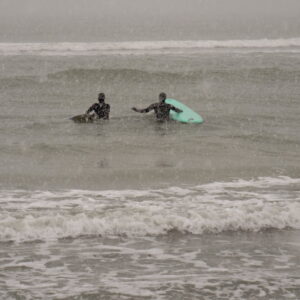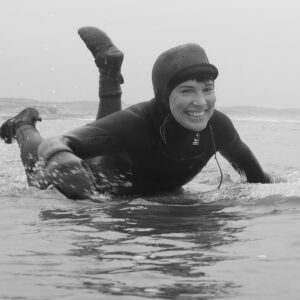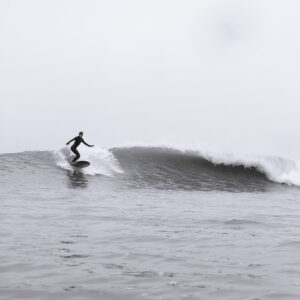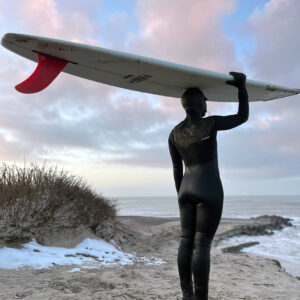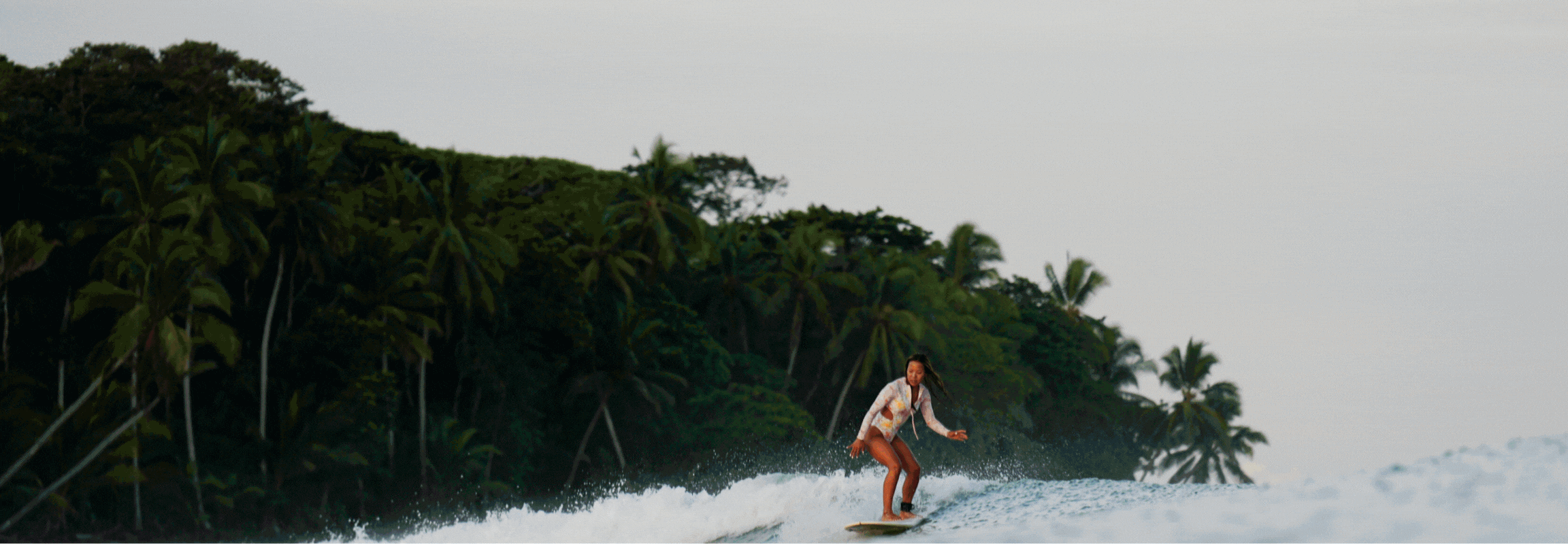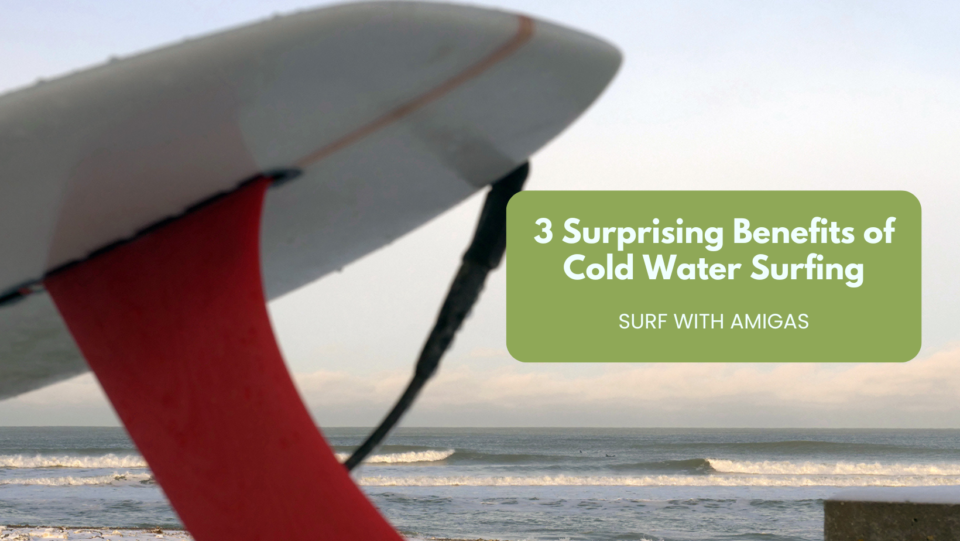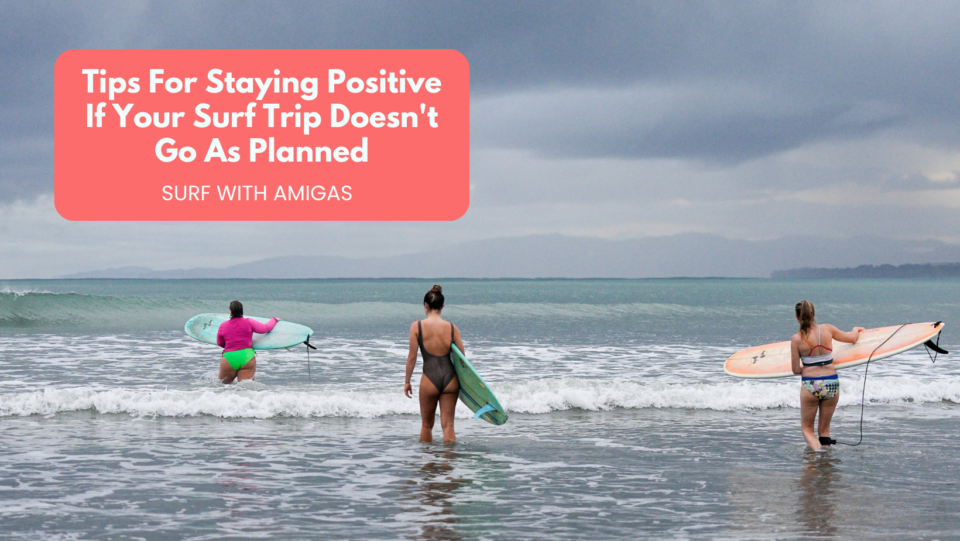If you’re a surfer, then you know that surfing is one of the most exhilarating and freeing experiences you can have! The thrill of catching a wave, living in daily rhythm with the ocean, and the camaraderie with fellow surfers create moments of pure joy. But, after years in the water, or when faced with difficult conditions after months of planning a surf trip, it’s sometimes easy to lose sight of that initial stoke. In those moments, we can get caught up in frustration, competitiveness, or an almost mechanical drive to catch as many waves as possible. These feelings are normal and part of the surfing experience! But here we propose a few ways to handle those situations to keep surfing fun, especially when expectations don’t meet reality on a surf trip.
The Trap of Wave-Hunting
At some point in your surfing career, you might notice a shift in your approach to the sport. This may especially manifest when on a surf trip of a lifetime. The focus becomes less about the sheer fun of riding a wave and more about how many waves you can catch in a session. You may even start to prioritize quantity over quality, chasing down every opportunity with little regard for those around you. This mentality can lead to frustration—whether it’s from not catching waves, dealing with crowded lineups, or just the pressure you put on yourself to perform.
This shift in mentality is understandable. After all, we want to improve, and there’s nothing wrong with being ambitious. But when the sole focus is on you and your wave count or performance, something important gets lost. Surfing can becomes less of a joyous escape and more of a chore—a task to complete, a competition to win. In my experience, the more you focus solely on catching waves, the less you actually enjoy the act of surfing.
To avoid getting stuck in the wave-hunting trap, it’s crucial to reconnect with the original joy that drew you to surfing in the first place. Start by consciously shifting your mindset away from competition and towards appreciation for the sport. Remind yourself that surfing is about more than just the number of waves you catch. Take a moment to pause between waves and appreciate where you are, and find new ways to have fun in the lineup and reduce the pressure to perform (read on for more of this). When you do feel that pesky frustration or negative self-talk creep in, give yourself permission to get out of the water and reset.
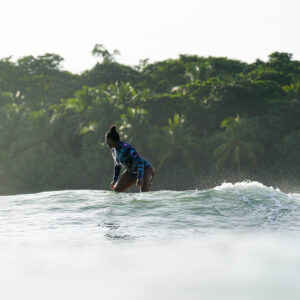
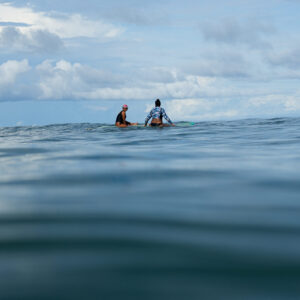
Dealing with Crowds and Bad Conditions
Sometimes, even on your best surfing days, frustration can still rear its head. Maybe the lineup is too crowded, and you feel like you can’t catch a break. Or you’ve planned an epic surf trip for months, only to be met with flat or stormy conditions. It’s easy to let these situations sour your experience, but there are ways to make the most of the cards we are dealt. Oftentimes, factors like weather or crowd are completely out of your control. In order to come to terms with frustration, acceptance of this fact is the first step.
Instead, focus on what you can control—your attitude and your approach. For example, if you’re surfing in a crowd, position yourself strategically (fill in holes in the lineup with less people), but don’t be overly aggressive. Find joy in the smaller moments, whether it’s a short ride, a well-executed turn, or even just sitting on your board and soaking in the scenery. Use the opportunity to work on different aspects of your surfing, like improving your paddling technique or practicing mindfulness in the water. Want more mindfulness tips for surfing? Check out these videos!
As for bad conditions or a skunked surf trip, remember that surfing isn’t just about the waves. Especially given just a week or two on a surf trip, try to accept that you won’t always have perfect conditions. Instead, try focusing on how it feels being in the ocean, connecting with nature, and enjoying the moment. If the waves aren’t great, take the opportunity to explore other aspects of the day/trip—whether it’s checking out a new spot, enjoying the local culture, interacting with the ocean in a new way (like fishing or snorkeling), or just spending time with friends. Even if the waves aren’t as you imagined, you very well could still be on a once in a lifetime trip!
Switch Up Your Board and have more Fun
This might seem like a no-brainer, but when your surfing starts to feel dull and mundane, sometimes all it takes is changing the board you’re riding to bring back the stoke. You can learn all about surfboards with Surf With Amigas Founder Holly Beck here. Hustling around on a potato chip shortboard in 2-foot, onshore slop isn’t likely to give you much satisfaction, no matter how skilled you are. Instead, consider grabbing a different board—something that suits the conditions and brings a fresh perspective to your session. Go for a fish, longboard, a soft top, a finless board, or even a surf mat or boogie board! Sometimes when we choose to ride a board completely different than what we’re used to, we can let go of expectations and put less pressure on ourselves, cultivating a more playful experience in the water. Also, new boards will challenge you in new ways and enhance your skillset.
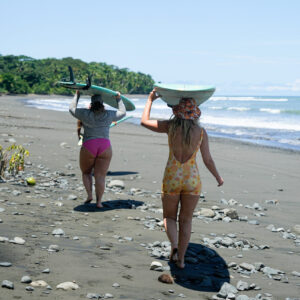
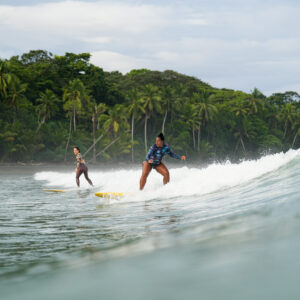
The Joy of Sharing Waves
If you find yourself getting frustrated for any of the reasons listed above, or no longer feel excited about surfing, I encourage you again to try reconnecting with a sense of play. One of the most rewarding experiences in surfing is sharing waves with others. When you drop into a wave and see a friend next to you, hooting and laughing, it amplifies the stoke. It’s a reminder that surfing is, at its core, a communal activity. It’s about the joy of being in the ocean together, sharing the highs and lows, and celebrating each other’s successes.
Next time you’re in the lineup, make a conscious effort to share the waves. Call out to someone else if you see a set approaching, offer a wave to a surfer who hasn’t caught one in a while, and take pleasure in watching others ride. You’ll find that this attitude doesn’t diminish your experience—it enhances it.
Surfing is meant to be fun. It’s meant to be a source of joy, connection, and stoke. When you find yourself getting frustrated, whether due to crowds, conditions, or your own mindset, take a step back and remember why you started surfing in the first place. Shift your focus from wave count to quality of experience. Be kind, be generous, and share the stoke. In the end, you’ll find that the more you give, the more you may receive in return.
